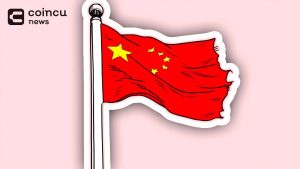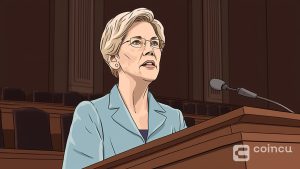OTC crypto shops are flooding Hong Kong, but regulations could have an impact
Hong Kong, one of the leading and most important financial centers in the world, has played a huge role in the development of cryptocurrencies. For example, Chinese territory has spawned some of the oldest and most successful crypto companies, including the FTX crypto derivatives exchange and the digital asset platform Crypto.com.
However, since trillions of dollars are regularly traded on established crypto exchanges in Hong Kong, there is also an abundance of over-the-counter crypto shops in the “Vertical City”. Henri Arslanian, PwC crypto team leader and past president of the Hong Kong Fintech Association, told Cointelegraph that the number of traditional OTC crypto brokers in Hong Kong certainly stands out. “These are really brick and mortar stores for the retail audience,” he said.
An anonymous source told Cointelegraph that while traveling around Hong Kong, he saw a huge surge in OTC crypto exchanges, some of which even offer access to crypto ATMs.

OTC retail stores make up Hong Kong’s cryptoculture
Compared to regions like the US or Europe, where it is fairly easy to buy and sell cryptocurrencies on regulated exchanges, Hong Kong’s physical crypto stores are a unique brand that gives individuals a different way to access cryptocurrency.
Kelvin Yeung, CEO and founder of the Hong Kong Digital Asset Exchange (HKD), sheds light on the darkness. Yeung told Cointelegraph that the HKD crypto exchange was launched in 2019, the physical store opened in January of this year, and it employs more than 30 people for customer service.

Yeung further commented that HKD’s business operates similarly to a traditional bank, offering customers physical access to purchase cryptocurrencies as well as access to personal advisory services. Hence, he believes retail stores will most likely be a global trend in the future as cryptocurrencies become mainstream:
“As more and more investors and institutional investors enter the industry and digital currencies become mainstream, there will be a tendency to open physical stores in combination with online platforms.”
Yeung added that in his opinion, having a physical presence will build greater customer trust between HKD and its user base. “Our users are mostly between 40 and 70 years old. The older customer base is playing an important role in bringing it mainstream as many of them still hold fiat currency and only trust traditional financial systems, ”he commented.
It is interesting that not only the older generation is buying crypto in these physical locations. Priscilla Ng, founder of Coiner HK – another OTC retail exchange in Hong Kong – told Cointelegraph that CoinerHK was launched in early 2020 to focus on the women’s market: “We wanted to create a women’s market.” Idea that women financially be independent and be able to invest independently. “
Hence, Ng shared that CoinerHK’s customers are mostly women, usually between the ages of 20 and 50, and around 70% of them trade cryptocurrencies. Ng also noted that CoinerHK has two physical business locations in the Hong Kong Gold District.

Echoing Yeung, Ng added that physical OTC exchanges can offer customers greater opportunities: “We treat them as friends when trading, and we also trust our customers with them. I am the owner of the physical locations.” Ng went on to comment that CoinerHK’s Wanchai venue also doubles as an art gallery with non-edible tokens (NFTs).
Regulations could crowd out physical OTC exchanges
While physical OTC crypto exchanges like HKD and CoinerHK seem to offer more access to cryptocurrencies across Hong Kong, there are some regulatory risks associated with the types of investments.
Arslanian explains, for example, that in addition to regular customers, Chinese mainland tourists are also the target customers of these facilities. He noted that many of these stores are located in tourist areas to attract users, but are particularly attractive to Chinese tourists because of China’s crypto ban: “One could argue that when Chinese mainland tourists visit Hong Kong, they are nothing from buying. ”Crypto in these OTC stores. “
With this in mind, Arslanian believes that the influx of Chinese tourists interested in buying cryptocurrencies could lead to a surge in retail OTC hubs in Hong Kong. On the flip side, Arslanian mentioned that Hong Kong’s upcoming regulatory framework for crypto exchanges could result in these deals being closed entirely.
As previously reported by Cointelegraph, Financial Services and the Hong Kong Treasury Department have considered restricting crypto access to investment portfolios with assets of $ 1 million or more. If passed, the new guidelines would limit access to cryptocurrencies to around 93% of the city’s population.
While this is a huge challenge for physical OTC stores, Arslanian commented that the OTC stores could just move their operations underground. However, this then increases the risk for customers: “If something goes wrong, the public is less likely to report it to the authorities.”
Regarding the regulatory uncertainty, Yeung commented that the biggest challenge for HKD right now is understanding whether Hong Kong will soon only allow institutional investors to invest in cryptocurrencies: “This will have a huge impact on our business.” Arslanian added that regulated crypto exchanges that cannot serve retail customers is something that the crypto community is extremely opposed to as it could very well result in users switching to platforms.
Unfortunately, Arslanian also points out that real OTC stores will find it extremely difficult to get the right license even if they try to be fully regulated. For the time being, Yeung mentioned that HKD only needs valid ID and address verification to buy and sell crypto on the exchange.
It’s interesting to see that OSL is currently the only regulated crypto exchange in Hong Kong that is also a unit of the Fidelity-backed BC Group. OSL CEO and Chief Financial Officer Andrew Walton told Cointelegraph that OSL was specifically designed with regulations in mind, and even practiced self-regulation before some of the existing laws were implemented.
In addition, Walton announced that OSL was formed under the Payment Services Act (PSA) of Singapore and has additionally registered for a digital payment token or DPT license through the Monetary Authority of Singapore. Recent impressive regulatory approvals have allowed OSL to expand its business to Latin America. “In Latin America, the OSL Exchange product will initially be offered to institutional and professional investors in the Mexico, Colombia and Argentina region. OSL’s LatAm offering will also seek appropriate licensing as regulations develop in the region, ”added Walton.
Private investors are needed from a business perspective
While OSL’s efforts are indeed remarkable, Arslanian points out that typically a large part of its revenue comes from retail customers who buy and sell crypto on exchanges, in turn attracting institutional customers. Hence, he noted that Hong Kong’s willingness to force crypto exchanges to only cater to institutional investors is a difficult requirement from a business perspective. While this is possible, Walton said, OSL’s interest in the institutional segment has increased significantly over the past year.
Given the ongoing regulatory uncertainty surrounding cryptocurrencies, Arslanian mentioned that Hong Kong is most likely best suited for institutional investors, while Singapore may be more affordable for retail clients.
Follow the Youtube Channel | Subscribe to telegram channel | Follow the Facebook page

















